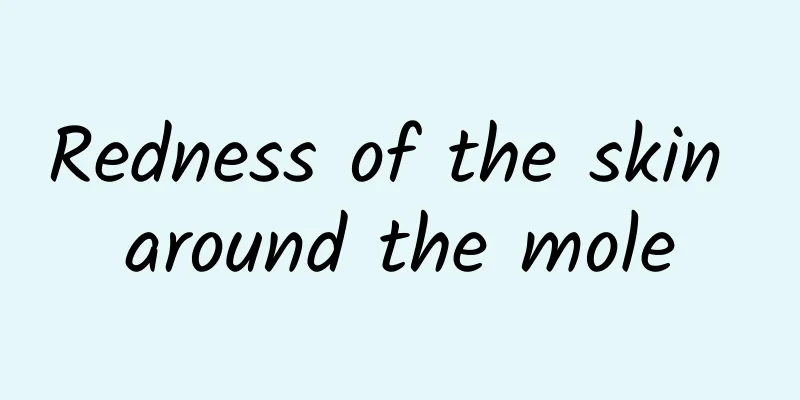What should patients with kidney disease pay attention to in their diet?

|
Kidney disease has become more and more common in our lives. It is also becoming more and more common among younger people and is receiving more and more attention in people's lives. So what should kidney disease patients pay attention to in their diet? 1. Sweets must be prohibited (unless blood sugar is low) First of all, for patients with high blood sugar, sweets must be prohibited, such as white sugar, brown sugar, rock sugar, glucose, maltose, honey, chocolate, toffee, fruit candy, candied fruit, etc. 2. If blood sugar is not well controlled, it is best not to eat fruit If you can control it well, you can eat small amounts of low-sugar fruits such as apples, pears, tangerines, oranges, grapefruits, etc. 3. Pickled products must be prohibited Pickled foods contain many carcinogens. Eating too much of them will not only cause cancer, but also cause great damage to the kidneys. Pickled foods contain a lot of chemicals, which are very harmful to the body. If you are a patient with kidney disease, it is best to eat more light foods, which is also very beneficial for your kidneys. 4. Do not eat the following foods Spinach, bamboo shoots, leeks, fennel, celery, radishes, etc. as well as soy products, animal offal, thick chicken soup, broth, etc. Fried foods are prohibited. 5. Do not eat irritating foods Such as wine, tea, coffee, various spicy condiments, such as onion, ginger, garlic, curry, mustard, pepper, etc., various spices. 6. Limit salt intake Edema and blood volume are closely related to salt. Every gram of salt can carry about 110 ml of water. If patients with nephritis consume too much salt, the urination function will be damaged. Edema will often be aggravated, blood volume will increase, and heart failure will occur. Therefore, salt intake must be restricted and a low-salt diet must be given. 7. Eat less salt If there is no edema or hypertension, the daily salt intake is about 4g. If there is edema and hypertension, the daily salt intake is 2-3g due to a low-salt diet, or less than 0.5g on a salt-free diet. Avoid high-salt foods such as pickles, salted eggs, cured meat, pickled vegetables, preserved eggs, fermented tofu, etc. It is not advisable to eat bananas because they contain a lot of sodium salt, and patients with nephritis who suffer from edema and high blood pressure must limit their sodium salt intake. 8. Limit protein The amount of protein intake should be determined according to the renal function. If the patient has oliguria, edema, hypertension and nitrogen retention, the daily protein amount should be reduced to 20-40 grams/day (appropriate endogenous metabolic nitrogen) to reduce the burden on the kidneys and prevent the accumulation of non-protein nitrogen in the body. However, this low-protein diet cannot be consumed for a long time, and can only be used for 7 to 10 days at most. Because long-term use of a diet with low nutritional value is not only detrimental to the stimulation and inhibition process of the cerebral cortex. It also affects endocrine metabolism and the consumption of inherent protein in the body. If the blood urea is normal and the creatinine clearance rate is close to normal, the daily protein supply should reach 1 gram/kg body weight. |
>>: What sleeping position is good for lower back pain? How to sleep without lower back pain
Recommend
What to do if you feel itchy all over during late pregnancy
During pregnancy, many pregnant women will have t...
Can diabetics eat white sugar?
The diet of diabetics needs special attention. Ge...
The dangers of a heart rate of 80
The normal heart rate of a normal person is betwe...
Cooking eggs with white lotus root will cause premature birth
White lotus roots are considered to be very good ...
Why do blisters appear in hot weather?
The weather now is getting hotter day by day. The...
Lactic acid bacteria capsules
There is a drink that is sour and sweet and very ...
Is it good to apply a facial mask during menstruation?
Women can apply facial masks during menstruation,...
Is type 0 blood universal?
In the past, people had the impression that O-typ...
Shoulder and neck exercises can help you improve shoulder and neck pain
Shoulder and neck pain is a common problem among ...
Symptoms of anxiety disorders
In modern society, I believe that everyone will i...
What are the contraindications of borneol?
Traditional Chinese medicine has a long history i...
Blood in stool
Fresh blood in the stool is commonly known as blo...
There are several possibilities for fainting due to stomach pain.
Stomachache can be said to be a common disease in...
The efficacy and function of cicada cordyceps and the usage of cicada cordyceps
The nutritional value of Cordyceps sinensis is ve...
What happens if the labia majora itches during pregnancy?
Pregnancy is a special period for women. Some phy...









